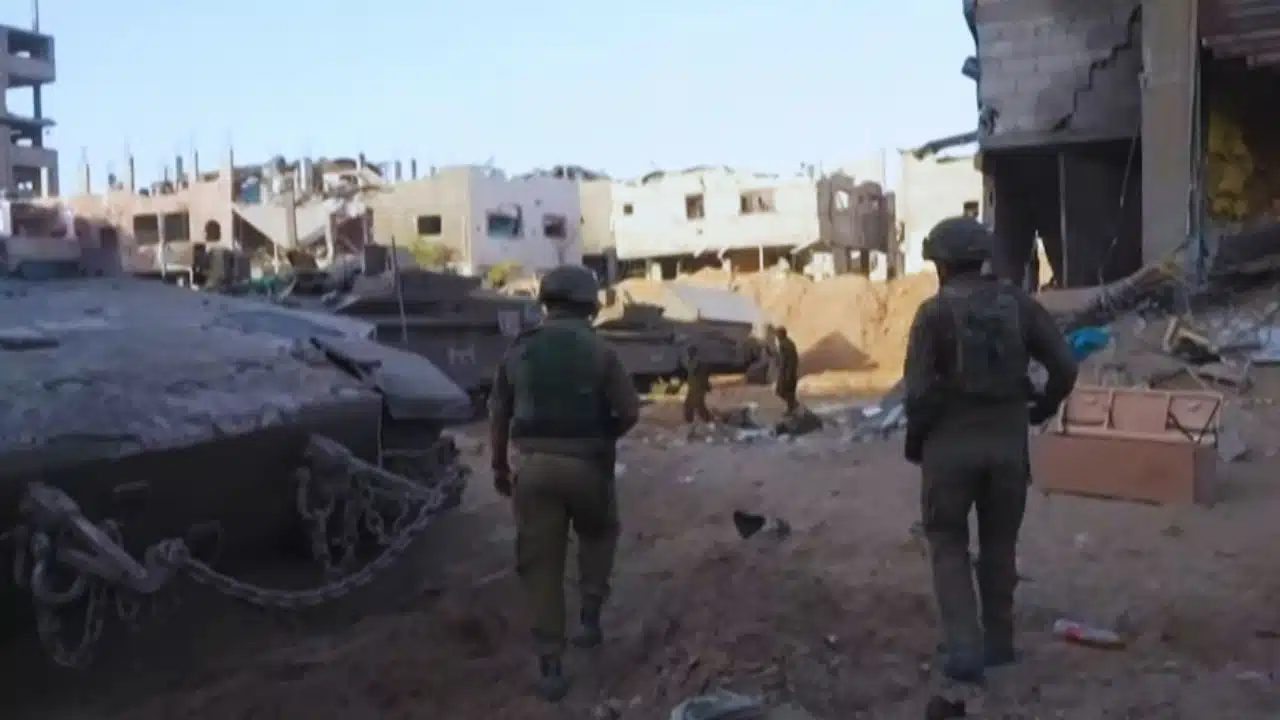On April 16, 2025, Israeli Defense Minister Israel Katz declared that Israeli troops will remain indefinitely in designated “security zones” within Gaza, southern Lebanon, and parts of Syria. This decision follows intensified military operations and has drawn significant international concern over its implications for regional stability and humanitarian conditions.
Expansion of Security Zones and Military Operations
Gaza Strip
Since resuming its offensive on March 18, 2025, after a two-month ceasefire, Israel has expanded its military operations in Gaza. The Israeli military reports that approximately 30% of Gaza has been transformed into a buffer zone, with around 1,200 targets struck during this period. Key areas, including the strategic Morag Axis, have been seized to establish these zones, effectively dividing Gaza into isolated sections and restricting movement between them .
Southern Lebanon
In southern Lebanon, despite a ceasefire agreement with Hezbollah in November 2024, Israeli forces have maintained positions in at least five locations. Recent Israeli drone strikes have resulted in civilian casualties, with Lebanon’s Health Ministry reporting over 70 civilian deaths since the ceasefire .
Southern Syria
In Syria, following the collapse of Bashar al-Assad’s government, Israel has established military posts, including on Mount Hermon. Prime Minister Benjamin Netanyahu has stated that Israeli troops will remain in these areas to ensure security, despite international calls for withdrawal .
Humanitarian Crisis in Gaza
The ongoing blockade and military operations have precipitated a severe humanitarian crisis in Gaza. Since March 2, 2025, no humanitarian aid has been permitted entry, leading to acute shortages of food, water, and medical supplies. The United Nations reports that over one million children are deprived of essential aid, with malnutrition and disease rates escalating .
The World Central Kitchen’s mobile bakery, the last operational bakery in Gaza, is functioning at reduced capacity due to flour shortages, producing only a third of its usual output . Hospitals are overwhelmed, with recent Israeli airstrikes targeting medical facilities, including the Al-Ahli Arab Hospital, further crippling healthcare services .
Hostage Negotiations and International Reactions
Israel’s military strategy is partly aimed at pressuring Hamas to release the remaining 59 hostages taken during the October 7, 2023, attacks. However, Hamas insists on a complete Israeli withdrawal from Gaza and a lasting ceasefire as preconditions for any hostage release. The release of a video showing a captive under duress has intensified domestic pressure on the Israeli government to prioritize hostage negotiations over territorial control .
Internationally, Israel’s actions have been met with criticism. The United Nations has condemned the obstruction of humanitarian aid and the targeting of civilian infrastructure, emphasizing that such actions may constitute violations of international law . Neighboring countries, including Lebanon and Syria, have denounced Israel’s continued military presence as an illegal occupation.
Israel’s decision to maintain an indefinite military presence in Gaza, Lebanon, and Syria marks a significant escalation in the region’s conflict dynamics. The expansion of security zones and the resulting humanitarian crisis have drawn widespread international concern. As hostilities continue, the prospects for a negotiated ceasefire and the alleviation of civilian suffering remain uncertain.
The Information is Collected from Sky News and Yahoo.




































